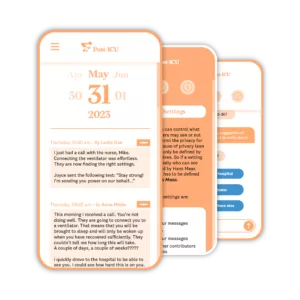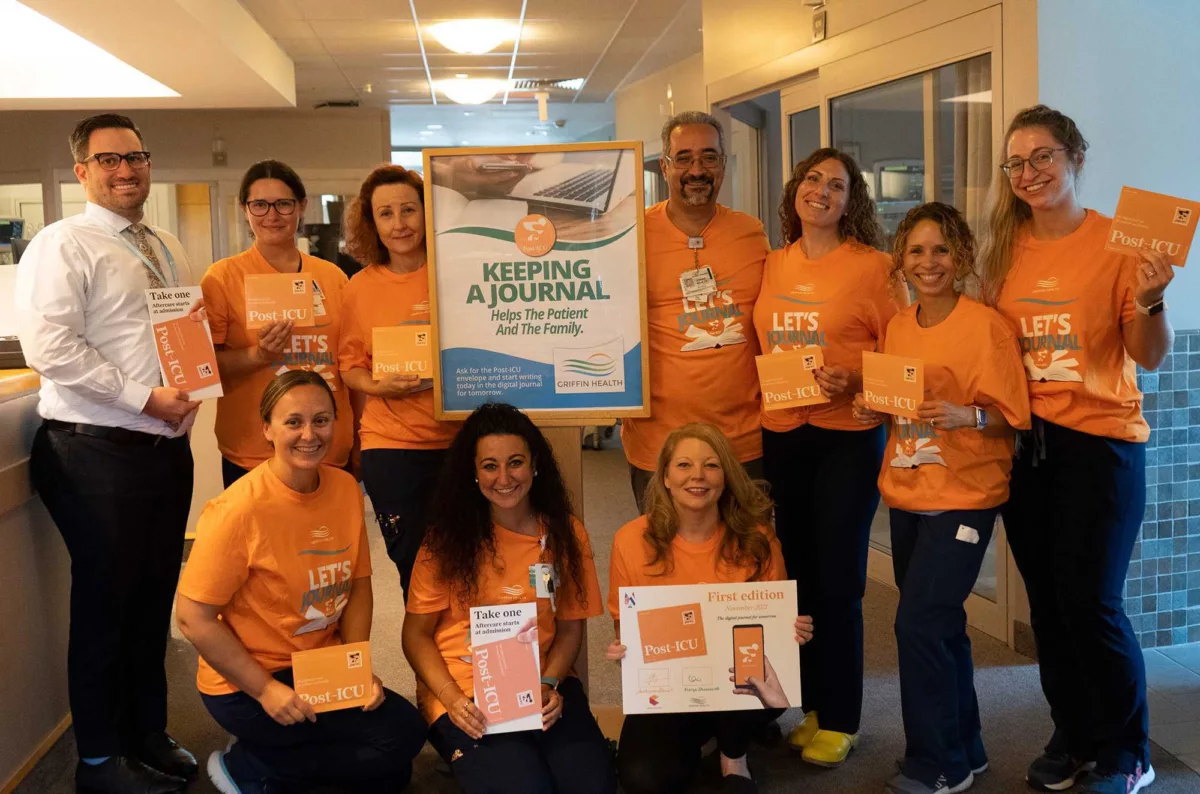Not ready for a demo? Watch a quick intro.
Post-ICU fosters clear communication and a sense of control during recovery, leading to higher satisfaction scores. The digital diary format allows patients to document their experiences and progress, potentially reducing anxiety and enhancing their overall well-being.
Post-ICU facilitates seamless communication between patients, families, and care teams, leading to better adherence to discharge plans and potentially reducing readmission rates. The diary allows for ongoing monitoring of patient progress, enabling healthcare teams to identify and address potential concerns before they escalate into readmissions.
Post-ICU eliminates the need for phone call updates, saving nurses and staff valuable time.
Post-ICU simplifies information access for the families, allowing staff to spend more time focused on the patients.
Healthcare workers report higher satisfaction and engagement ratings when using the Post-ICU diary.
They gain a better understanding of the patient, communicate more effectively with the family, and feel more rewarded for the work they do.
The ICU Liberation Bundle emphasizes family involvement (F-element), but it’s often overlooked.
In the Post-ICU digital diary, healthcare workers and family members of ICU patients collaborate in care. The digital diary is the only scientifically proven tool that directly enhances family care and engagement.
Experience a dynamic digital ICU diary like never before.
From seamlessly adding multiple writers to a diary and effortlessly uploading photos, to extensive privacy options: the digital Post-ICU diary offers unparalleled functionality.
Hospitals in Europe
Average number of entries per journal

Post-ICU is trusted by +25 Hospitals in Europe



















At Griffin Health, the Post-ICU digital diary has been implemented as part of their holistic approach to healthcare and as part of their vision on person-centered care.
This Case Study examines the challenges Griffin faced and how we overcame them in collaboration.




Post-ICU was developed with privacy and security top of mind.
Post-ICU documents, processes and application all comply with standard EU hospital security, legal and privacy practice and include:
Post-ICU is a service and is priced per staffed ICU bed per year. The minimum amount is 15 beds. The price depends on the number of beds a hospital contracts. If you want a quote for your hospital, please leave your contact details (with the form above) and we can send you a quote.
If you are interested in what exactly is included in the cost, please find more information here.
59% of all ICU survivors will suffer from psychological impairments after leaving an ICU. Additionally, up to 75% of family members of ICU patients will develop mental or cognitive issues, such as anxiety, depression, and post-traumatic stress disorder (PTSD). Approximately a third of these family members will require psychiatric medication.
Since it is hard to predict who will develop problems, research suggests to keep a diary at all times, for all ICU patients and families. If you would like to learn more, you can review the scientific evidence and recommendations on our sources page.
Nurses & other staff can write as little or as much as they like in a diary. Journaling is part of providing care, not an administrative task. Furthermore, when HCP’s use the diary to provide short updates, families are better informed, leading to fewer phone calls and a reduction in overall burden.
Explore our resources hub full of expert-level content and materials.
Learn how to reduce ICU readmissions and improve patient care today!